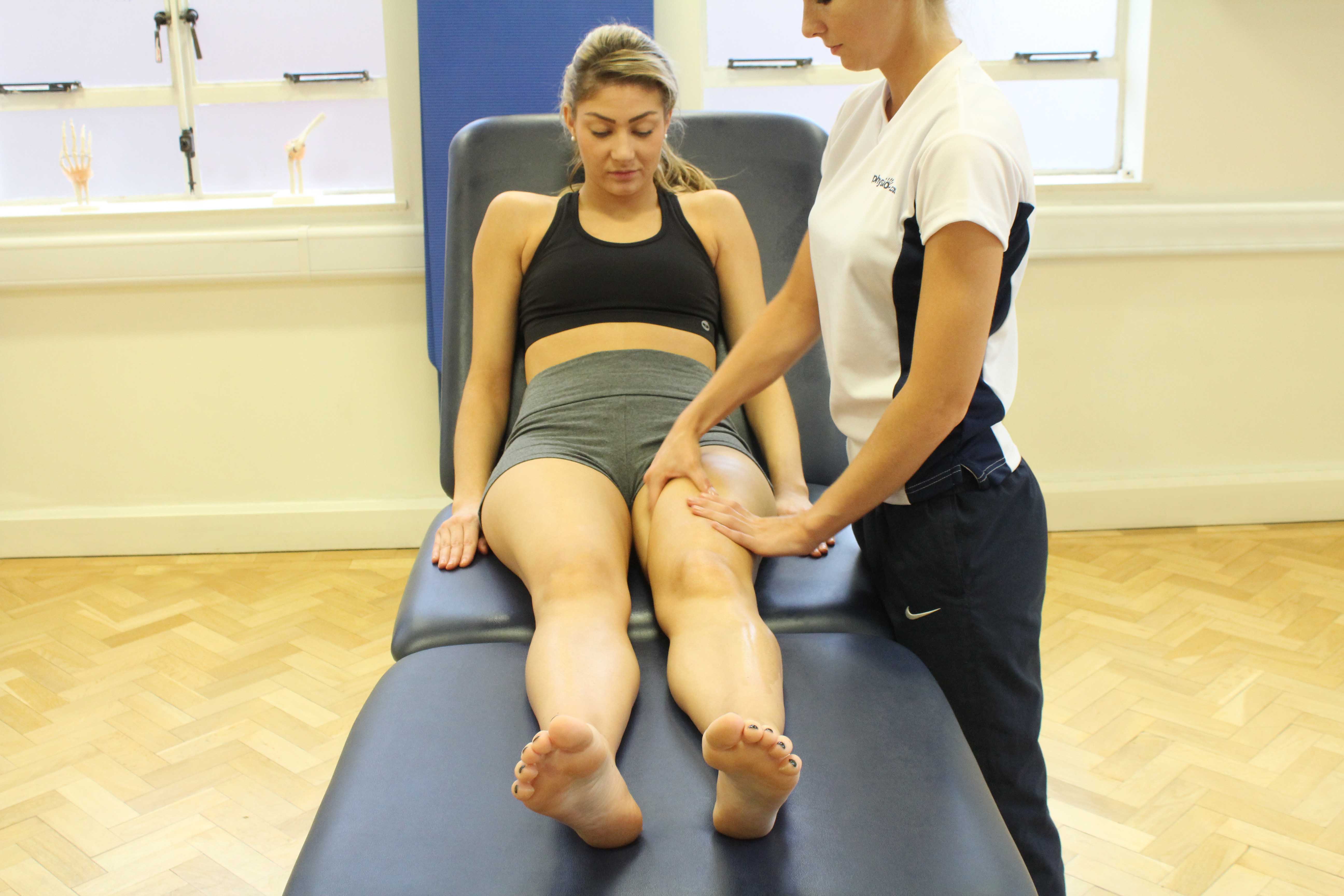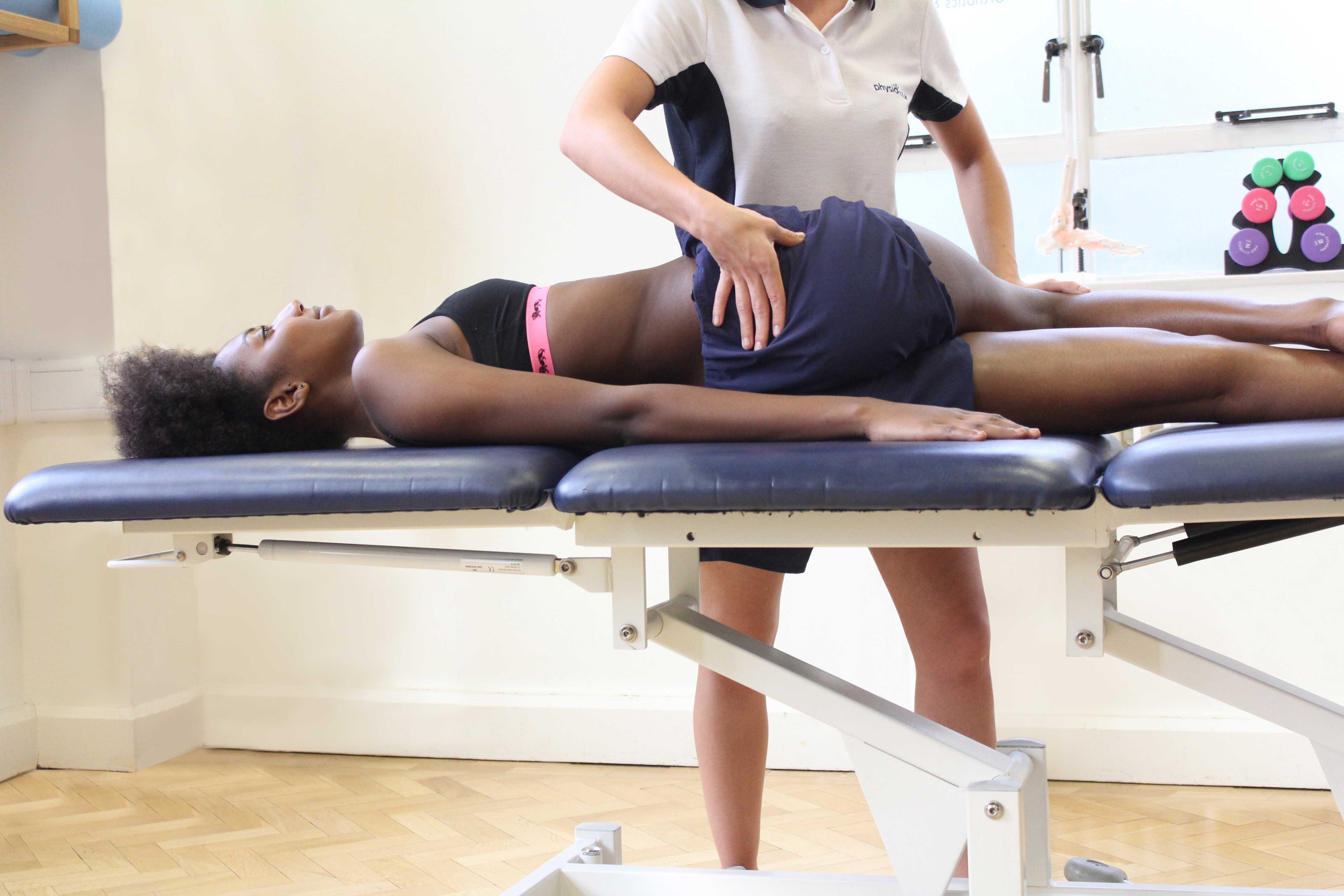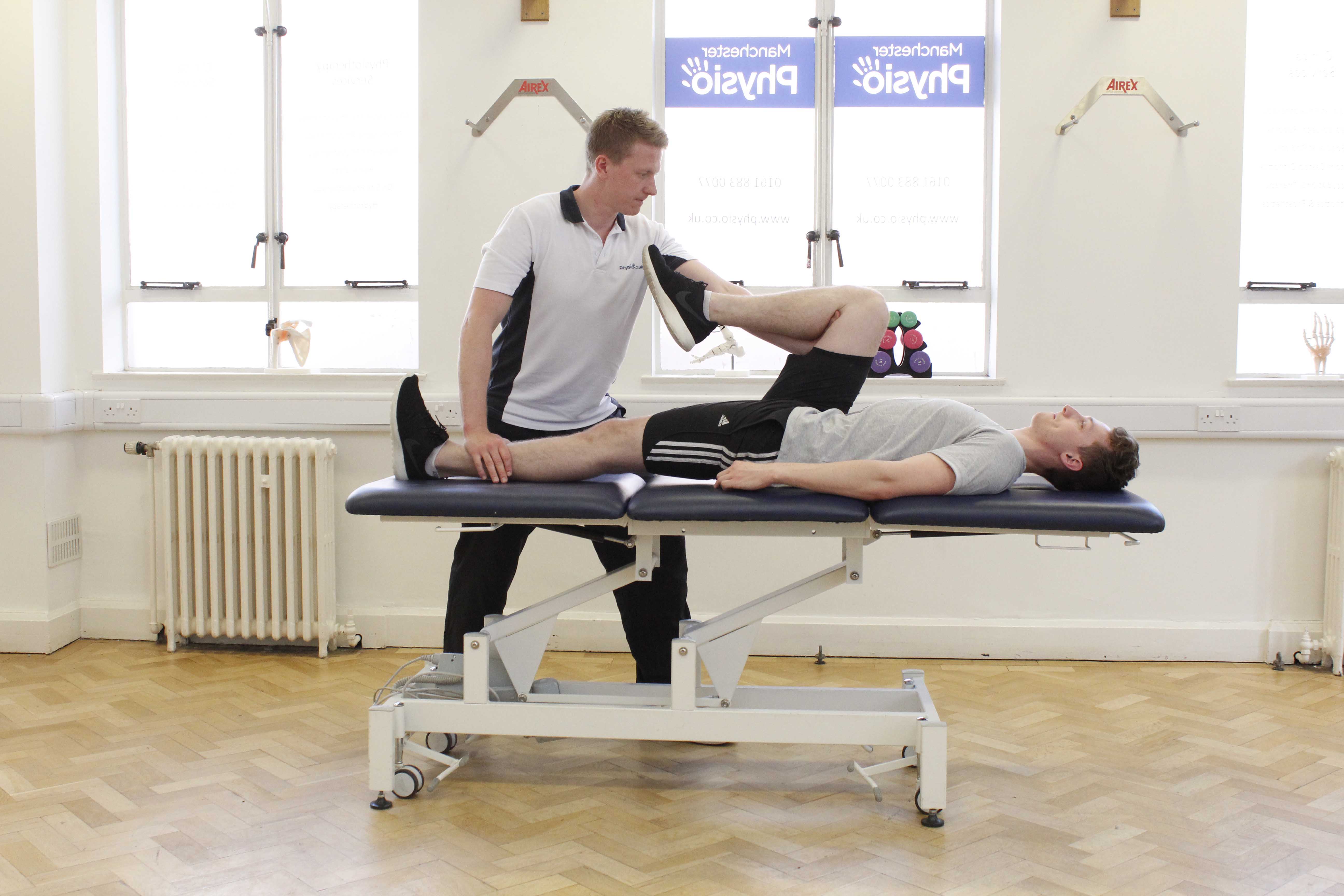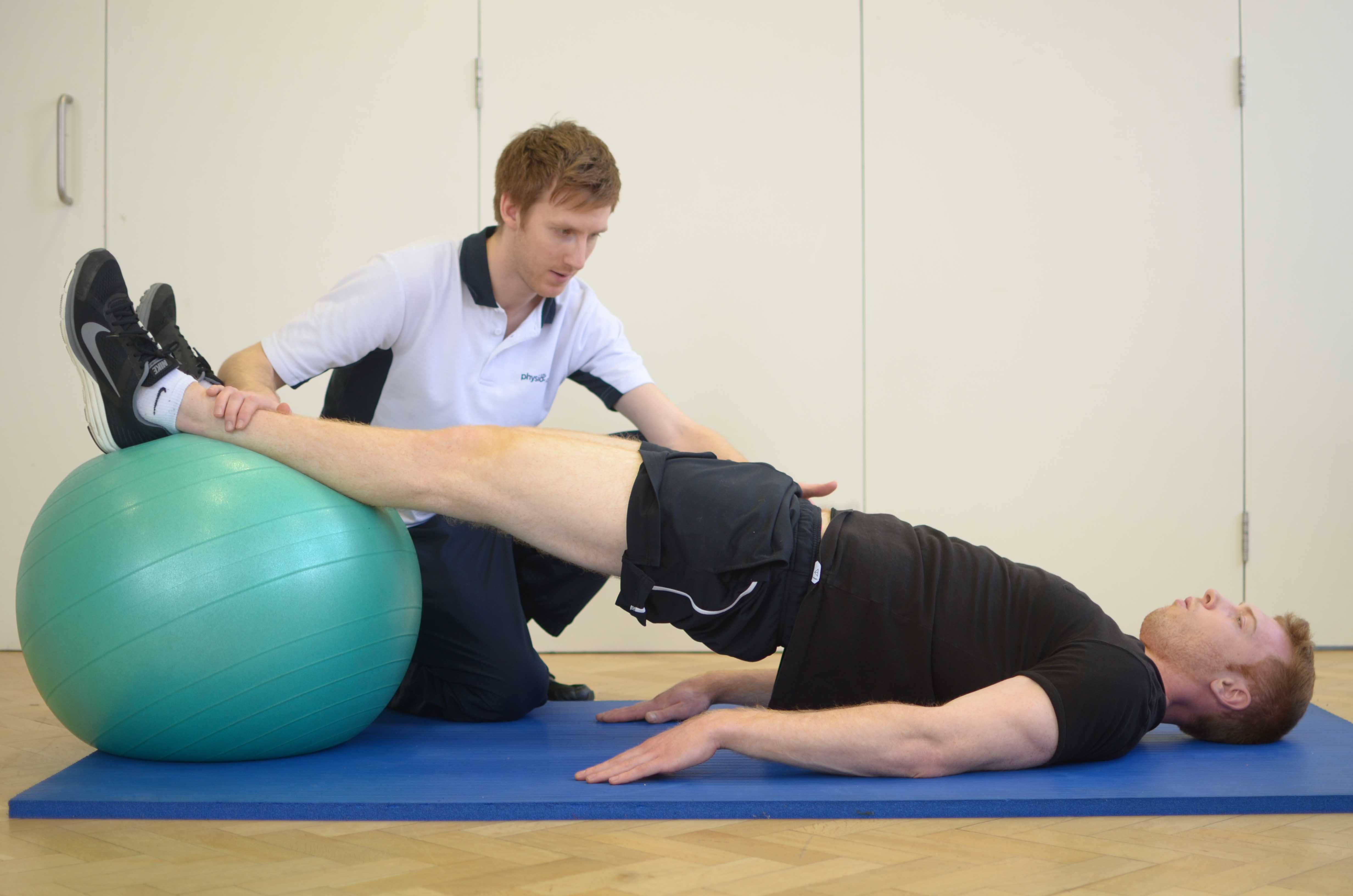What is iliopsoas bursitis?
The iliopsoas is a muscle at the front of the hip that bends the hip forwards. A bursa is a fluid-filled sac which allows tissues in the body to slide over one another without friction. Iliopsoas bursitis is inflammation of the bursa that prevents friction between iliopsoas muscle and the underlying bone. Physiotherapy is an important part of the rehabilitation for iliopsoas bursitis.
 Above: Soft tissue massage of the muscles and connective tissues around the groin by an experienced therapist
Above: Soft tissue massage of the muscles and connective tissues around the groin by an experienced therapistHow does iliopsoas bursitis happen?
If the iliopsoas muscle is excessively tight, increased pressure and friction is placed on the bursa. This friction increases wear and tear on the bursa which, over time, can result in thickening of the bursa, inflammation and bursitis.
How does iliopsoas bursitis feel?
Iliopsoas bursitis is characterised by pain over the front of the hip. Sometimes pain can be felt in the groin region. Pain is often worsened by activities such as walking, running, climbing the stairs, crossing your legs and getting in and out of the car. Other symptoms include:
What should I do if I have iliopsoas bursitis?
If you suspect you have iliopsoas bursitis you should arrange an assessment with a physiotherapist. In the meantime, you should avoid any activities which aggravate your pain. With iliopsoas bursitis, the pain is often relieved with rest but, if the cause of the pain is not addressed, it is likely that your pain will return as you return to normal activities.
 Above: Passive stretch of the muscles and connective tissues of the hip and groin by specialist therapist
Above: Passive stretch of the muscles and connective tissues of the hip and groin by specialist therapistPhysiotherapy treatment for iliopsoas bursitis.
Physiotherapy is important in the treatment of iliopsoas bursitis. Your physiotherapist will be able to make a diagnosis and can use a number of treatment techniques to reduce your pain. Your physiotherapist will also be able to determine what structures are causing the inflammation within your iliopsoas bursa and address this as your pain settles to prevent a reoccurrence. Other treatment includes:
 Above: Passive stretch of the muscles and connective tissues of the hip and groin by specialist therapist
Above: Passive stretch of the muscles and connective tissues of the hip and groin by specialist therapistCould there be any long-term effects from iliopsoas bursitis?
Iliopsoas bursitis does not usually cause long-term effects and generally gets better within a matter of weeks.
 Above: Progressive strengthening hip exercises supervised by experienced therapist
Above: Progressive strengthening hip exercises supervised by experienced therapistTo arrange an assessment with a specialist physiotherapist call Physio.co.uk on 0330 088 7800 or book online.

 0330 088 7800
0330 088 7800

































